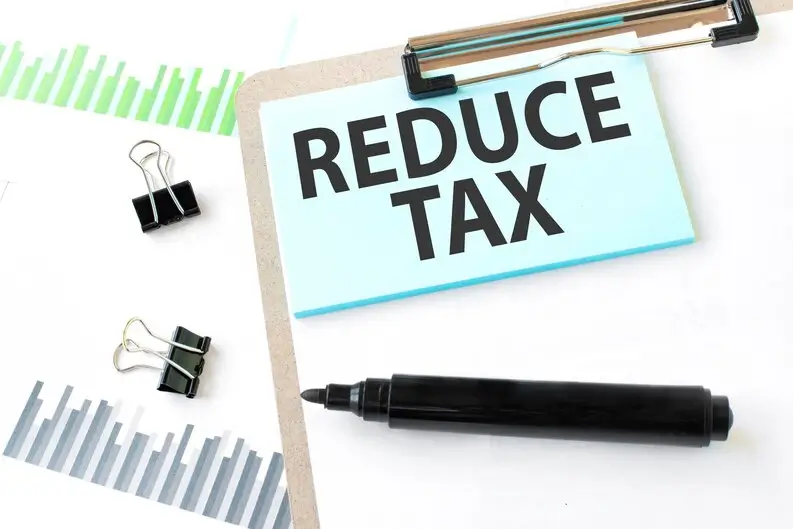Bangladesh’s tax framework plays a crucial role in driving economic growth and funding public services, with taxes contributing 80% of the country’s total internal revenue. The system covers both personal and corporate income, with corporate tax measures designed to create a balanced tax structure. Bangladesh’s tax system follows a progressive model, where ‘the more a taxpayer earns, the more they pay.’
Highlights of the Corporation Tax Structure in Bangladesh
Bangladesh’s corporate tax system, often referred to as corporation tax, company tax, or business tax, is a direct tax levied on the net taxable income and capital earned by businesses operating within the country.

This tax structure applies to a range of entities, including:
- Corporations or organizations conducting business in Bangladesh: This includes companies that generate income from operations within Bangladesh, even if they are not based in the country.
- Corporations registered in Bangladesh: Any business legally registered within the country is subject to corporate tax.
- Foreign legal entities permanently based in Bangladesh: International businesses with a permanent establishment in Bangladesh are required to pay corporate taxes on their earnings.
- Resident legal entities: Companies that qualify as residents for tax purposes must comply with the country’s corporate tax regulations.
- Nationalized banking and financial institutions: Any state-owned banking or financial organization established in Bangladesh is subject to the corporate tax system.
- Branch, liaison, or representative offices: Businesses that operate through branch offices, liaison offices, or representative offices registered in Bangladesh are required to pay corporate taxes.
- Joint venture companies (JVs): Joint ventures that are registered and operating in Bangladesh must also comply with the corporate tax regulations.
For more detailed information on starting and managing businesses in Bangladesh, check out our guide on how to register a company in bangladesh.
Corporation Tax Rates in Bangladesh
The corporate tax structure in Bangladesh features a range of tax rates depending on the type of legal entity and the nature of its business activities. These competitive tax rates are designed to encourage economic growth while ensuring compliance with the country’s tax laws. Here’s a breakdown of the corporate tax rates in Bangladesh:
| Type of Business Entity | Tax Rate |
|---|---|
| Publicly traded industrial companies with over 10% paid-up capital | 20% |
| Listed industrial firms with less than 10% paid-up capital | 22.5% |
| Listed banking, insurance, and non-banking financial companies | 37.5% |
| Non-listed banking, insurance, and non-banking financial entities | 40% |
| One-person companies registered after July 1, 2022 | 22.5% |
| Merchant banks | 37.5% |
| Tobacco companies (plus a 2.5% surcharge) | 45% |
| Ready-made garment manufacturers (without green building certificate) | 12% |
| Ready-made garment manufacturers (with green building certificate) | 10% |
| Export-oriented enterprises (with green building certificate) | 10-12% |
| Unlisted mobile phone providers | 40-45% |
| Jute exporters | 10% |
| Private educational institutions | 15% |
| Cooperative societies | 15% |
Challenges of the Corporation Tax Structure in Bangladesh
The corporate tax structure in Bangladesh faces several challenges that impact its effectiveness and efficiency. These challenges are often related to the incorporation and functioning of business entities within the country. Key issues include:

- Tax evasion and avoidance: Widespread issues with tax evasion and avoidance contribute to corruption, undermine the rule of law, and encourage the accumulation of undisclosed wealth. For strategies on addressing these concerns, explore how to whiten black money in bangladesh.
- Low corporate tax collection: The overall tax collection from businesses is relatively low, affecting the country’s revenue generation.
- Corruption in tax administration: Corruption within the tax administration system is a growing concern, undermining trust in the tax framework.
- Lack of accountability and oversight: The corporate tax framework in Bangladesh lacks adequate accountability, monitoring, and supervision, which hampers transparency and fairness.
- Monopoly of tax authorities: There is a perceived monopoly by tax officials and authorities, leading to potential abuse of power and a lack of checks and balances.
- Turnover tax complexities: As an indirect tax similar to VAT in Bangladesh, turnover tax adds layers of intricacy to the tax framework, potentially causing confusion for businesses seeking compliance. For more insights on VAT-related strategies, explore how to avoid VAT ethically in bangladesh.
- High corporate tax rates: Increased corporate tax rates can deter business investments and growth, making it challenging for companies to thrive.
How to Reduce Corporation Tax in Bangladesh

Businesses in Bangladesh can explore several strategies to minimize their corporate tax liabilities:
- Offset taxable losses and carry forward these losses for up to six years.
- Utilize depreciation allowances to reduce taxable income.
- Tax exemptions for newly established industrial undertakings and tourist industries.
- Tax relief for infrastructure development, such as physical infrastructure facilities.
- Special tax exemptions for companies operating in designated economic zones like the Bangladesh Export Processing Zone Association (BEPZA).
- Incentives for public companies: A 10% tax rebate is available if the company converts to a public limited company by transferring 20% of its paid-up capital via an IPO.
- Exemptions for approved provident and gratuity funds: Tax exemptions for the income of provident and gratuity funds approved by the National Board of Revenue (NBR).
- Rebates for Corporate Social Responsibility (CSR) activities that are approved by tax authorities.
To learn more about how these benefits can influence your overall tax liabilities, check out our detailed guide on income tax calculation bd.
Conclusion
The challenges faced in the corporate tax structure in Bangladesh need proper tax planning for Bangladesh including policies, reforms, and rules to maximize the tax benefits.
The most difficult part of your legal concerns is selecting the best tax lawyer. Your choice of attorney has a significant impact on your chances of success. When it comes to services and knowledgeable attorneys, Legal Advice BD ought to be your first option.
For more information on how legal advice bd can assist you in navigating the complexities of investment and business operations in Bangladesh, please contact us at:
Contact Information
For more information on how Legal Advice BD can assist with investment and business operations in Bangladesh, please contact us now:
- Phone/WhatsApp: +88 01711 349 444
- Email: info@legaladvicebd.com

